Robbers, teachers and graveyards

When I began Class-8 in Bhanga, I wanted to sit for a scholarship exam. I didn't think I would do well necessarily, in fact, I was not even planning to take the scholarship exam. Rather my plan was to visit Faridpur, the town where the exam would be held. My parents allowed me to take a steamer there by myself. I was seated in the galley when an older gentleman asked me about my aims in life. I told him that I wished to become an artist, an answer that irritated the man. Apparently to him a girl wanting to become an 'artist' was a shameful proposition. He grumbled to the other passengers about my answers and on finding consensus about my waywardness, he turned to me and asked if my school was 'co-educational', as though it was the final evidentiary piece he needed to prove my corruption. I didn't know what the word meant so I said "I don't think so". At this the man raised his eyebrows and asked me if I knew the meaning of the word "co-educational" and I admitted that I did not. I had grown tired of pretence.
One of the subjects I had at school in Bhanga was Urdu, taught by a strict, humourless mullah teacher. During the final we were given a list of ten words in Urdu to translate into Bangla. I was able to translate only one of these words correctly, but fearing that I might not even receive that single mark, I felt compelled to add a note requesting that if I received a zero I will rip your beard to shreds.
The outraged mullah, my sir, arrived at our house the next day. We met in our drawing room, where he informed me that he was going to show my father the insolent threat I had written in the notebook. I sat quietly, not knowing what to do. My father's office was adjoining the drawing room. While he happened to be in that day, he was in a foul mood; we could hear him loudly berating his constables. The mullah, with my notebook in hand, nervously edged towards my father's office several times, but hearing the shouts, kept losing his nerve. When an uneasy silence eventually fell in my father's office, the mullah went to investigate if this would be a good time to present him with the evidence of my crime. Fortunately for me, he left the notebook behind. I took this opportunity to rip it up.
In a dak bungalow near our school in Bhanga lived an engineer named Nazrul Islam. He was a bachelor and would visit our house from time to time for dinner. At other times he would send his orderly to our house with a tiffin carrier for some of my mother's cooking. Sometimes I and other girls from the school would go and visit him as a group. On those occasions he would offer Horlicks. He would prepare it in a special way, adding the Horlicks, some boiling water and sugar in a cup and blending it into a smooth batter before adding the remaining water. He always made it this way, except for the one time when his orderly found the cups first, and thinking them dirty, cleaned out all the Horlicks batter.
On one occasion when my family and I were on holiday in Dhaka we visited the Engineer's family, who lived in the capital. His relatives surrounded me and teased me that I was going to marry him. This was news to me, but rather than thrill I felt only awkwardness. They surrounded me and showed me one of my own pictures which so irritated me that I took it and ripped it up right in front of them. But for some reason the part of the picture that was my face would not rip. I threw it into the well in their front yard.
When we went back to Bhanga, the Engineer visited our house one day and presented me with a gift that was very nicely wrapped. I opened it to find a beautiful sky-blue jamdani orna with a white border. I barely glanced at it before throwing it on bed and running out to play with the other girls, leaving the engineer standing there. The engineer was visiting us with his father, who suggested a marriage between his son and me. My father gently rejected the proposal saying that at 14, I was too young.
Nazrul Islam eventually married a well-educated woman closer to his own age. Following their wedding in Dhaka, the two of them visited us in Bhanga. My mother greeted them graciously and treated them well. The new bride's name was Hazera and she had taken the name of her husband, Nazrul. She didn't look upon me kindly. I felt small and nervous. A large pimple on my nose compounded my insecurity.
By dint of his official position, Nazrul was entitled to a large riverboat. He took me for a ride on it that day along with him and his wife. In my presence he taught his wife how to steer the ship, holding her closely from behind as she giggled. I realised that this may have been their honeymoon trip, and my presence felt awkward. I wished that they had not brought me along with them.
Hazera Nazrul would go on to join Home Economics College in Dhaka as a lecturer and I would eventually become her student. She would teach our chemistry class, which I attended nervously as I felt that she did not like me and because I was already very weak in that subject, in fact I remember only one term from the class: molecule. Years later, Mr. Nazrul would die in the Bangladesh Liberation war as a renowned freedom fighter. His wife would go on to become a famed author. I have in my library a copy of her collected works.
Some months after the visit by Engineer Nazrul and his wife, I was invited to sing in a social event. My father was invited too. While I was practising backstage the heavy bamboo scaffolding holding up part of the stage broke away and fell on my head. I was terribly hurt, bleeding and dizzy, but I pushed myself through the performance. I didn't dare disclose the injury to my father, such was my fear of him. Throughout the evening the pain and dizziness threatened to choke my voice, but my trembling hands stayed on the harmonium keys, and I kept singing. It was not until we were back on the boat to cross the river to go home that I finally began to wail from the pain. My father was shocked and asked me what was wrong and I told him what had happened. He checked my head with his electric torch and found a large lump under my thick hair. He could also see dried blood. He laid me down and poured river water on my head to reduce the swelling, exclaiming aloud all the time about how I could have sung so loudly and for so long with such an injury. I soon developed a high temperature so once we reached home my father summoned a doctor.
This doctor's name was Brajen Dash. He would visit us whenever someone fell ill in the household. He was meticulous about washing his hands after seeing a patient. One of us would be enlisted to pour the water on his hands while he leisurely scrubbed them with soap. Buckets of water were brought to the verandah for this very purpose as the bathroom was far from the main home. Our orderly would stand alongside with a towel for him.
Home visits by doctors were common then. No one was ever in a hurry. Life seemed secure and unthreatened. Political murders and accidents such as we have now were uncommon. Even when there was the occasional robbery the dacoits would considerately inform their victims beforehand about their invasion. However, at times they would also send misleading information, suggesting one venue but then attacking another.
These dacoits were highly superstitious. Hindu dacoits would perform a puja before setting off on a robbery. There is an unforgettable story from my childhood that illustrated this. A group of dacoits had invaded a home for a robbery that was conducted with particular brutality. An entire family was massacred in the course of it. Later, when the dacoits were sitting in the gathering room dividing up the spoils, they were shocked to see a beautiful, middle-aged woman appear among them, wielding a great ram dao in her hands. It was the matriarch of the household, driven to madness at the sight of her dead children and husband. But the dacoits were convinced that it was Mother Kali who had come down from the heavens to punish for forgetting to propitiate her before they embarked on their robbery. They fell on her feet and begged for mercy. What ultimately happened to them or to the woman I do not know, but I recall reading this story in a police magazine.
From Bhanga my father was transferred to Sherpur, a sub-division of Mymensingh district. We stayed in a dak bungalow in our first few months there, as the house allotted to our father was not yet vacated by its resident at the time: a widowed Hindu officer who lived there with his mistress.
In our neighbourhood there were many girls who were good singers. They would visit our house and sing for hours while my father listened attentively. While in Sherpur my father took a renewed interest in my music education. He hired a tabla teacher for me who would play the tabla while I played the harmonium and sang. He taught me the main beats of the tabla: trital (16 metre), kaharba, dadra, jhumur, teura and jhap.
But at one point my tabla teacher decided to move out of Sherpur and back to his home district of Rajshahi. He came by the day before his departure to say farewell to us. As it happened, that was a day when my father had just administered a beating to me, and my teacher found me crying. Misinterpreting my tears, he said, "Oh this world of maya. Do not cry daughter. Do not cry." Neither my mother nor I had the heart to correct him.
My singing improved rapidly while I was at Sherpur and I was encouraged by my family to take music as one of my SSC examination subjects. In fact, this decision probably helped me pass my SSC examination. I had to travel to Jessore to appear for my music examination. I was one of only two students who was taking music as a subject that year. The other girl was named Nadira. At the exam she sang Raag Bageshri, while I sang Raag Malkauns. Nadira would go on to become an accomplished singer later in life.
We were in Sherpur no more than a few months before my father was transferred to the main town of Mymensingh. Behind our house here was a paddy field, and still beyond a graveyard covered with tall swaying grass. I developed the habit of visiting this graveyard very late at night. I would stay there for hours, utterly unafraid. I felt compelled to be there and once there, was in a trance. I was found there one night by my parents when they had woken and found the door of my room open. Not finding me in bed they had come out the open backyard door and, carrying torches and hurricane lanterns, continued the search in the area nearby until they located me in the graveyard. I no longer recall my parents' level of anxiety on this matter but after this incident there was a lock on my door at night. The news caused a sensation in town, and for many years afterwards when I met people from there I would ask them if they knew of a policeman's daughter named Rosy. They would admit to knowing of the family, adding that the daughter was obviously a mad girl as she would visit graveyards at midnight.
From Mymensingh my father was transferred to Bagerhat, where I was admitted to Class-10 at Bagerhat Girls High School. The headmistress was a short lady whose name I don't remember, but I was only at that school for one or two months.
In our backyard in Bagerhat was a mature mango tree whose branches spread out widely. The tree was right next to our outhouse bathroom so I would climb the bathroom walls to the roof with a boti in hand to cut the fruit from the tree and eat them on the roof.
It was here that I was in mortal peril late one night. I had risen to visit the bathroom, and although normally I carried a hurricane lantern with me this night I was too lazy to get one. However, upon coming to the bathroom door I changed my mind and went back to fetch the lantern. It was just as well that I did, for once I actually entered the bathroom, greeting me on top of the water tank was a full-grown cobra hissing with its hood flared out.
Near our house was a dark bungalow in which a pair of American Peace Corps volunteers named Don and Lyman used to reside. Although my siblings and I could hardly speak English we would nonetheless visit the Dak Bungalow to gawk at the foreigners. One day when we visited them, Lyman was apparently asleep. Seeing us, Don called his friend, saying "your company is here." God only knows what I said to them as in those days I only spoke broken English.
One evening in Bagerhat there was a loud knock on our door at 7 pm, which is considered a late hour in such a rural area. My father was out of town on a tour, and it was my mother and us in the house with no other male adult. We were naturally alarmed by the knock on the door and did not respond. After repeated blows we finally yelled out "who's there" in Bangla. Some seconds passed and then a heavy voice said "Don". Don didn't speak Bangla but had surmised what we had asked given the context. When I opened the door I found Don standing there with a small pair of shoes in his hands. It was my younger brother Iqbal's that we had left at the bungalow when we had visited earlier that day.
Another evening, when it was Lyman's turn to visit, he arrived holding his belly and moaning. As it turned out, he had eaten some bad hilsa fish. My father gave him some of his homoeopathic medicine and advised him to lie down on our sofa. Lyman did so, remaining at our house for a long while during which my father would check on him from time to time.
After just a few months in Bagerhat my father was transferred to Narail. We were there for three months, until I took my matriculation exams. Thereafter my siblings and I went to Dhaka to spend time with my maternal grandparents while my parents went to Patuakhali so that my father could take up yet another posting.
I discovered in Dhaka that my maternal parents had not mellowed over the years. They were still very harsh, bordering on cruel, with me. My nana relished teaching us, and interpreted that responsibility as overloading us with a lot of homework such as translation and reading comprehension. He was not reassured by the effects of his tutelage on us, darkly warning that I was headed for academic disaster. As the day of my final school examination approached, one of my maternal uncle's wife's (my mami) who had come to visit, furtively whispered in all ears "Rosy will never pass", referring to me by my nickname.
These dour pronouncements took a toll. I became increasingly nervous as the day of the exam approached. I kept forgetting the year the Battle of Plassey took place. So on the day of my history exam I wrote the year (1757) down on the hem of my white pyjamas to remember. My father was visiting me in the city at this time and somehow he discovered my scheme. When I emerged from the exam room I found him in the hallway in full uniform, extremely anxious that I had cheated on my test. I told him that the question on Plassey never appeared.
As we awaited my results in Dhaka it seemed that my grandfather was looking forward to confirming my failure. On the day the results were to be published he visited the newspaper office very early to check the papers for my name, which would appear if I had passed. He returned shortly after and triumphantly declared that my name had not appeared in the paper. My extended family appeared visibly delighted by this turn of events. I was indifferent to the news as I believed that the only thing that stood between me and academic excellence was a desire to apply myself, and since I did not wish to apply myself, it was of course no surprise that I had failed.
The morning my results were to be published, I was sitting on the verandah. I watched the newspaper man leave the daily paper under our gate at the usual time. I picked it up and found my roll number in a separate section on the first page. This was the rule for students appearing in a different board than Dhaka, which in my case was Narail.
My extended family was irritated at having been proven wrong, but eventually my grandfather grudgingly asked me where I wanted to study next now that I had completed matriculation. I told him that I would have a better idea if he would show me the campuses of the different colleges. My plan was to select a college not based on its academic merit, rather based on how pretty I found the buildings. My grandfather took me around the city to see a few before I decided that the buildings of the Home Economics College in Dhaka were the most beautiful. I informed my grandfather of my intentions of studying there.
Read Chapter 7 of this memoir on May 14 on Star Literature.
Sultana Nahar is an author, lawyer, and former columnist at The Daily Star.

 For all latest news, follow The Daily Star's Google News channel.
For all latest news, follow The Daily Star's Google News channel. 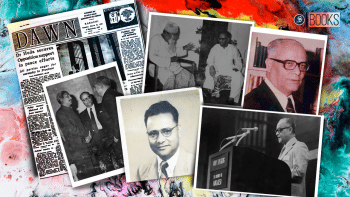

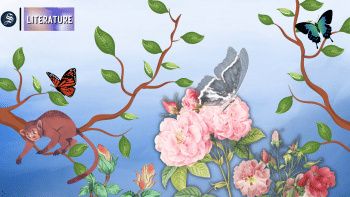


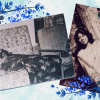

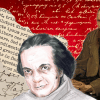
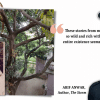


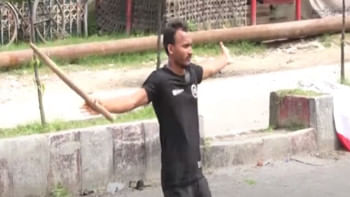
Comments